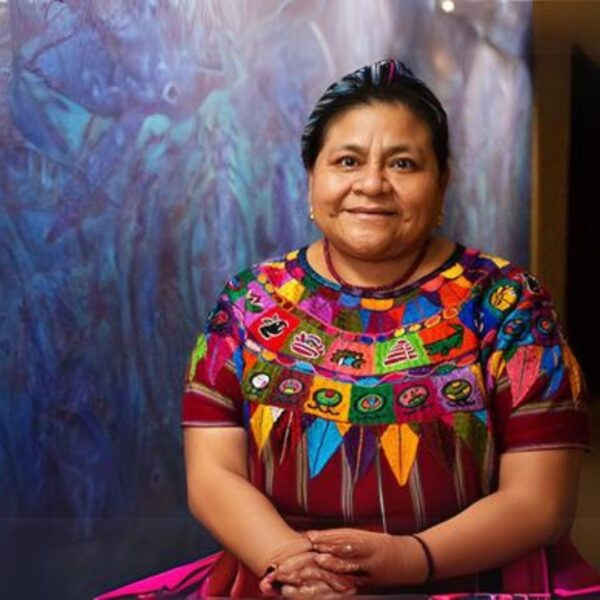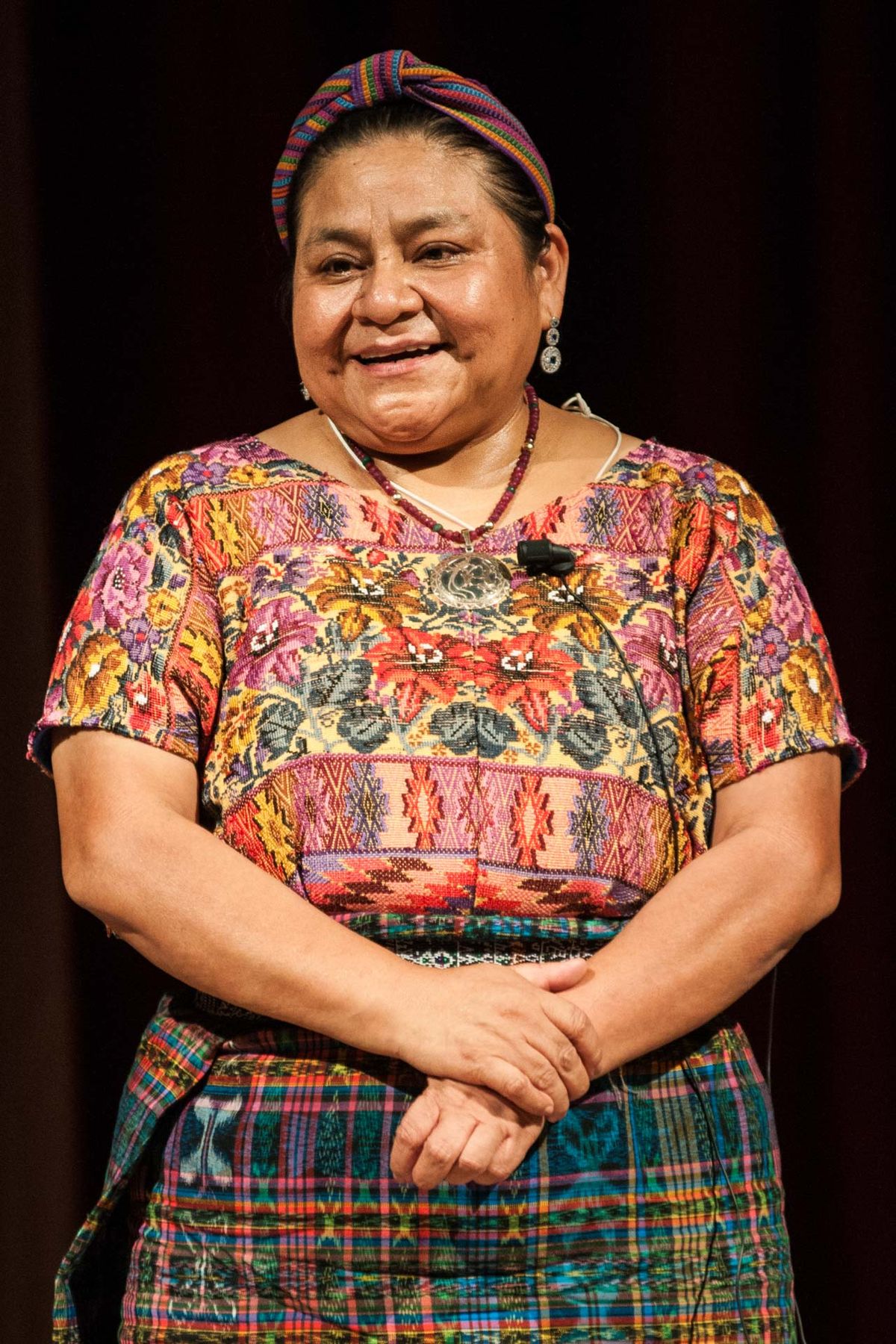Learn about Rigoberta Menchú, Nobel Peace Prize winner from Guatemala. Discover her inspiring work for indigenous rights, human rights, and global justice.

Early Life in Guatemala
Rigoberta Menchú was born in 1959 in Guatemala’s highlands.
She grew up in a poor Quiché indigenous family.
From an early age, she saw injustice and discrimination against her people.
Her parents and siblings faced violence and persecution during the civil war.
These experiences shaped her lifelong mission for justice, equality, and human dignity.
Menchú often says, “Peace is not just the absence of war, it is the presence of justice.”
Her childhood taught her the value of courage and standing for what is right.
Fighting for Indigenous Rights
Menchú became a powerful voice for indigenous communities in Guatemala.
She spoke out against government oppression during the civil war.
Her courage brought international attention to the struggles of her people.
She organized campaigns for land rights, education, and women’s empowerment.
Despite threats, violence, and personal loss, she never gave up.
Her story reminds us of people like Paul Farmer, the doctor who healed with love. They dedicated their lives to serving others.
Menchú’s work highlights that advocacy and compassion can transform societies.
Nobel Peace Prize and Global Recognition
In 1992, Rigoberta Menchú received the Nobel Peace Prize.
The award honored her fight for human rights, social justice, and non-violence.
She became a global symbol of hope for oppressed communities.
Her humility and honesty made her a role model for generations.
Menchú explains, “My mission is not to speak for myself, but for those who cannot speak for themselves.”
Humanitarian Work
Menchú’s humanitarian efforts go beyond Guatemala.
She co-founded the Rigoberta Menchú Tum Foundation, which helps indigenous communities access education, healthcare, and cultural programs.
Her foundation empowers children, women, and marginalized groups.
She advocates for peace, human rights, and environmental protection worldwide.
Menchú speaks at international forums, promoting dignity and equality.
Her words inspire action: “If we remain silent in the face of injustice, we become part of the oppression.”
Political and Social Advocacy
Menchú has also engaged in politics to drive change.
She ran for President of Guatemala, bringing indigenous rights to the national spotlight.
Even without winning, she inspired thousands to believe that change is possible.
Like José Mujica, Uruguay’s honest leader, Menchú lives simply and prioritizes principles over wealth. You can read more about him here.
Her life shows that true leadership comes from compassion, integrity, and service.
Life of Humility and Courage
Despite global recognition, Menchú lives modestly and remains connected to her roots.
She maintains her cultural identity and practices what she preaches.
Her life is a lesson in honesty, courage, and service.
She inspires millions with her words:
“Justice, democracy, and human dignity are not luxuries—they are rights.”
“No one can fight alone. Solidarity is the strength of humanity.”
Menchú teaches that leadership is about empathy, service, and standing up for others.
For more global humanitarian stories, visit www.america112.com.
Final Thoughts
Rigoberta Menchú’s story is one of hope, resilience, and humanity.
She shows that one person can create lasting change.
Her dedication to indigenous rights, global justice, and humble living makes her a true role model.
Menchú reminds us that true power lies in standing for others, with courage, honesty, and humility.

